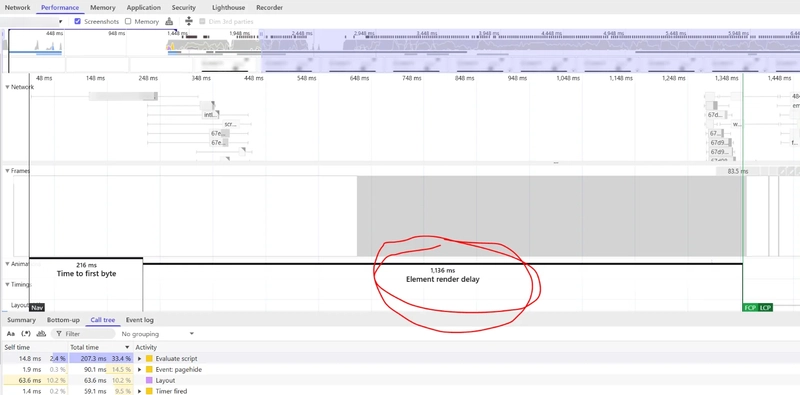Firefox's Data Sharing: What It Means for Your Privacy
Abstract In this post, we explore Firefox’s recent data sharing changes and analyze what they mean for your privacy. We examine the historical context, key technical details, and the broader ecosystem impact—from telemetry data and browser settings adjustments to the emerging Web3 influence. We also offer practical applications, discuss potential challenges, and highlight future trends in browser privacy trends. Whether you’re a privacy hawk or a casual user, this post aims to provide a clear and technical overview of Firefox’s new data sharing policy and its implications. Introduction Firefox has been a favorite among privacy enthusiasts due to its open-source nature and robust privacy tools. However, in early 2025, Mozilla updated its data sharing policy to improve browser performance and support its free software model. These changes have stirred debate as they affect how Firefox collects and processes technical data, interaction data, and even optional information like ad clicks. This article delves into these changes, explains the context behind them, and offers guidance on protecting your privacy while enjoying Firefox’s advanced features. Background and Context Firefox’s roots lie in the open-source community, built on the principle of transparency and user control. Historically, Firefox delivered a “no data sharing” promise that attracted users wary of digital tracking. However, to remain competitive and sustain itself financially, Mozilla has had to explore new revenue models—often tied to search deals and partnerships. The updated policy, which became effective on February 25, 2025, reflects these pressures by allowing default data collection with certain conditions and clear user management options. Mozilla maintains that the collected data (such as crash logs and feature usage) is anonymized and used exclusively for improving the browser. For further details on Firefox features and updates, you can visit the Firefox Browser page and check the updated Firefox Privacy Notice. Core Concepts and Features Data Sharing and Telemetry At its core, the new data sharing model involves collecting two main types of data: Technical Data: This includes information like the operating system, browser version, and crash reports. Such data is vital for Mozilla to debug issues and improve stability. Interaction Data: This covers how users interact with Firefox—tab usage, certain feature clicks, and even data related to optional ads and search suggestions. Mozilla has implemented multiple safeguards, such as anonymization through techniques (like OHTTP) and user control features. In addition, pre-release versions of the browser (Nightly and Beta channels) collect more detailed data for research purposes, but users can opt out if desired. Key Privacy Features and Settings Firefox continues to be highly configurable. Users can adjust data sharing settings easily by navigating to “Settings” → “Privacy & Security,” where they can opt out of telemetry and disable optional data sharing features like Firefox Suggest. For a comprehensive guide on managing these settings, visit the Manage Data Settings page. Below is a bullet list summarizing key configuration tips: Disable Telemetry: Uncheck the option to send technical and interaction data. Opt Out of Optional Data: Turn off New Tab ads or disable features like Firefox Suggest. Access Advanced Settings: Use the about:config page to tweak specific flags such as media.peerconnection.enabled for stopping WebRTC leaks. Enhance Privacy with Add-ons: Use add-ons like uBlock Origin and Privacy Badger for extra protection. Comparing Firefox with Other Browsers Let’s compare Firefox’s new privacy model with other browsers in the current market: Browser Data Sharing Privacy Tools Unique Hook Firefox Configurable, with default telemetry data Enhanced tracking protection; many add-ons available Open-source & flexible Chrome Extensive, optimized for ad revenue Basic tracking protection Integration with Google services Brave Minimal data sharing; shields enabled by default Built-in ad blocking and anti-tracking Native Web3 integrations (BAT) LibreWolf No telemetry by default Maximal privacy settings Privacy-first fork of Firefox Safari Limited sharing within Apple ecosystem Intelligent tracking prevention Ecosystem integration This table highlights that although Firefox now collects some data by default, its approach is still more transparent and user-controlled compared to more data-hungry competitors like Chrome. Applications and Use Cases Improved Browser Stability and User Experience The technical data collection helps Mozilla identify and fix bugs. For example, if crash logs indicate recurring issues with a new feature, developers can prioritize fixes and deploy updates faster. This leads to a more stable browser experience for users and
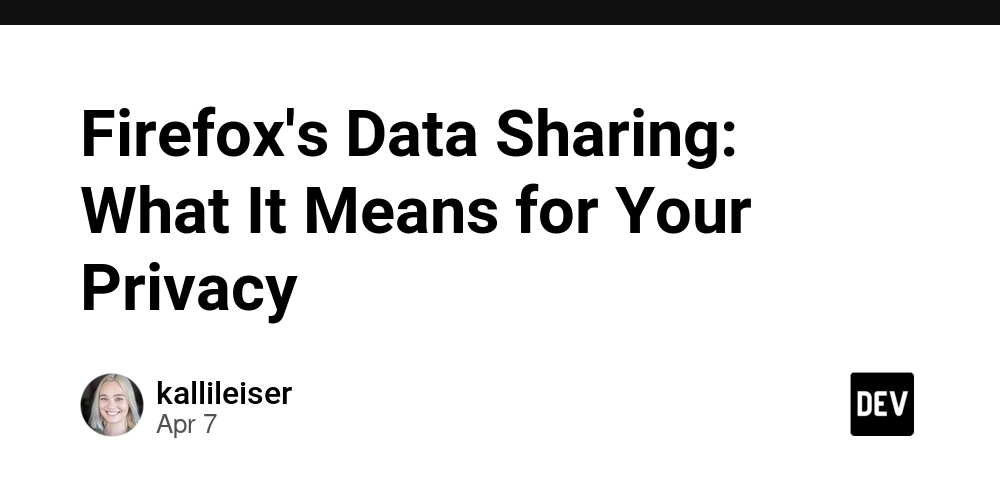
Abstract
In this post, we explore Firefox’s recent data sharing changes and analyze what they mean for your privacy. We examine the historical context, key technical details, and the broader ecosystem impact—from telemetry data and browser settings adjustments to the emerging Web3 influence. We also offer practical applications, discuss potential challenges, and highlight future trends in browser privacy trends. Whether you’re a privacy hawk or a casual user, this post aims to provide a clear and technical overview of Firefox’s new data sharing policy and its implications.
Introduction
Firefox has been a favorite among privacy enthusiasts due to its open-source nature and robust privacy tools. However, in early 2025, Mozilla updated its data sharing policy to improve browser performance and support its free software model. These changes have stirred debate as they affect how Firefox collects and processes technical data, interaction data, and even optional information like ad clicks. This article delves into these changes, explains the context behind them, and offers guidance on protecting your privacy while enjoying Firefox’s advanced features.
Background and Context
Firefox’s roots lie in the open-source community, built on the principle of transparency and user control. Historically, Firefox delivered a “no data sharing” promise that attracted users wary of digital tracking. However, to remain competitive and sustain itself financially, Mozilla has had to explore new revenue models—often tied to search deals and partnerships. The updated policy, which became effective on February 25, 2025, reflects these pressures by allowing default data collection with certain conditions and clear user management options.
Mozilla maintains that the collected data (such as crash logs and feature usage) is anonymized and used exclusively for improving the browser. For further details on Firefox features and updates, you can visit the Firefox Browser page and check the updated Firefox Privacy Notice.
Core Concepts and Features
Data Sharing and Telemetry
At its core, the new data sharing model involves collecting two main types of data:
- Technical Data: This includes information like the operating system, browser version, and crash reports. Such data is vital for Mozilla to debug issues and improve stability.
- Interaction Data: This covers how users interact with Firefox—tab usage, certain feature clicks, and even data related to optional ads and search suggestions.
Mozilla has implemented multiple safeguards, such as anonymization through techniques (like OHTTP) and user control features. In addition, pre-release versions of the browser (Nightly and Beta channels) collect more detailed data for research purposes, but users can opt out if desired.
Key Privacy Features and Settings
Firefox continues to be highly configurable. Users can adjust data sharing settings easily by navigating to “Settings” → “Privacy & Security,” where they can opt out of telemetry and disable optional data sharing features like Firefox Suggest. For a comprehensive guide on managing these settings, visit the Manage Data Settings page.
Below is a bullet list summarizing key configuration tips:
- Disable Telemetry: Uncheck the option to send technical and interaction data.
- Opt Out of Optional Data: Turn off New Tab ads or disable features like Firefox Suggest.
-
Access Advanced Settings: Use the
about:configpage to tweak specific flags such asmedia.peerconnection.enabledfor stopping WebRTC leaks. - Enhance Privacy with Add-ons: Use add-ons like uBlock Origin and Privacy Badger for extra protection.
Comparing Firefox with Other Browsers
Let’s compare Firefox’s new privacy model with other browsers in the current market:
| Browser | Data Sharing | Privacy Tools | Unique Hook |
|---|---|---|---|
| Firefox | Configurable, with default telemetry data | Enhanced tracking protection; many add-ons available | Open-source & flexible |
| Chrome | Extensive, optimized for ad revenue | Basic tracking protection | Integration with Google services |
| Brave | Minimal data sharing; shields enabled by default | Built-in ad blocking and anti-tracking | Native Web3 integrations (BAT) |
| LibreWolf | No telemetry by default | Maximal privacy settings | Privacy-first fork of Firefox |
| Safari | Limited sharing within Apple ecosystem | Intelligent tracking prevention | Ecosystem integration |
This table highlights that although Firefox now collects some data by default, its approach is still more transparent and user-controlled compared to more data-hungry competitors like Chrome.
Applications and Use Cases
Improved Browser Stability and User Experience
The technical data collection helps Mozilla identify and fix bugs. For example, if crash logs indicate recurring issues with a new feature, developers can prioritize fixes and deploy updates faster. This leads to a more stable browser experience for users and ensures that Firefox remains competitive even as web technologies advance.
Customizing User Privacy
Advanced users can fully disable telemetry and adjust settings to align with their privacy preferences. Whether you’re a developer working on open-source projects or a privacy advocate, Firefox allows granular control over what data is shared. This customization is especially useful in enterprise settings where data compliance is critical.
The Web3 Angle and Emerging Trends
While Firefox’s main focus remains on traditional data collection methods, the policy hints at a potential future intersection with Web3. Competitors like Brave integrate blockchain-based rewards systems, but Firefox’s subtle nod to utilizing a license for user input hints at future decentralized models. As blockchain and Web3 technologies mature, we might see Firefox or similar browsers exploring tokenized incentives or even offering NFT-based privacy settings. For instance, innovations in Blockchain and Open Source Licensing suggest that combining these technologies could lead to more transparent data sharing practices.
Challenges and Limitations
Technical Hurdles
One of the main challenges for Firefox is ensuring that data is truly anonymized. Despite the use of anonymization techniques, there is always a risk that data could be misused or de-anonymized through advanced techniques. Mozilla must continue to invest in cutting-edge encryption and secure data processing methods.
Adoption Concerns
Long-time users of Firefox have voiced concerns over the new data sharing terms, given the browser’s legacy of championing privacy. Striking a balance between financial sustainability and upholding privacy standards is difficult. If users feel that Firefox is moving too far from its privacy roots, many may consider switching to alternatives like LibreWolf or Brave—browsers that enforce stricter privacy by design.
Regulatory and Ecosystem Pressures
As global data protection regulations tighten, Mozilla faces increased scrutiny. While the company has made efforts to clearly outline its data use policies, privacy advocates and regulators continue to monitor any ambiguities in the Terms of Use. Compliance with EU data protection standards, for example, means that Mozilla has to constantly update its practices and possibly face legal challenges if it appears to deviate from established norms.
Future Outlook and Innovations
Trends in Browser Privacy
Looking forward, browser privacy is expected to evolve in tandem with emerging data regulation and technology innovations. Trends such as:
- Increased Transparency: Users will demand more clarity on what data is collected and how it is processed.
- Decentralized Data Management: Technologies like blockchain could offer more user sovereignty by logging data collection events on a public ledger.
- Enhanced User Control: Future browsers may incorporate more intuitive privacy controls that allow users to manage their data in real time, perhaps even through mobile apps or integrated dashboards.
Integration with Web3 and Digital Identity
While Firefox is not yet a Web3 browser, its recent policy changes indicate an awareness of blockchain’s growing influence. In a future where your digital identity is increasingly tokenized, browsers may act as gateways not only to web content but also to decentralized application ecosystems. Mozilla might partner with projects like License Token to explore new models for compensating for open source contributions—a vision supported by evolving discussions on open-source funding models such as those seen in GitHub Sponsors and Open Source Funding.
Funding and Sustainability in the Open-Source Ecosystem
Mozilla’s changes also bring to light a broader conversation about funding open-source projects. With increased reliance on partnerships (e.g., Mozilla’s relationship with search giants like Google), we see a shift towards models that balance financial viability with user privacy. Publications like Navigating the Maze of Open Source Licensing Challenges emphasize that sustainable funding models will be necessary to drive innovation without compromising on privacy.
Summary
Firefox’s updated data sharing policy is a significant pivot in the browser’s evolution. While the open-source giant has historically been synonymous with user privacy, its new model introduces a measured degree of data collection aimed at improving product stability and securing necessary funding. Users have the tools available, from privacy settings to browser add-ons, to mitigate data sharing risks. However, the challenge remains in maintaining trust within a landscape that is increasingly skeptical of data collection practices.
Key takeaways include:
- Modernized Data Collection: Firefox now collects technical and interaction data, which aids in bug fixing and feature development.
- User Control: The browser retains robust privacy settings, allowing users to disable telemetry and optional ads.
- Open-Source Integrity: Despite these changes, Firefox’s open-source nature means that anyone can scrutinize its code—a transparency that helps build trust.
- Innovative Trends: The influence of Web3 and blockchain advancements suggests that future iterations of Firefox may incorporate decentralized identity and token-based compensation models.
- Competitive Landscape: Compared to browsers like Chrome, Brave, and LibreWolf, Firefox still provides a more user-centric and configurable privacy model.
References and Further Reading
For more in-depth details, the following authoritative resources are useful:
- Visit the Firefox Browser page for the latest download and feature updates.
- Read the complete updated Firefox Privacy Notice to understand data sharing protocols.
- Explore Mozilla’s Annual Report for insights into funding and operational strategies.
- Check out the Mozilla Data Privacy FAQ for answers to common privacy questions.
- For updates on the revised terms, review the Mozilla Terms of Use Update.
Additionally, insights from the open-source community and tech funding include perspectives from:
- Embracing The Power Of Community-Driven Projects
- Navigating The Maze Of Open Source Licensing Challenges
- Blockchain and Digital Signatures: A New Era of Security
Finally, for the original deep dive into Firefox’s new policy, see the Original Article on License Token.
Final Thoughts
The evolution of Firefox’s data sharing policy demonstrates the challenges and opportunities of balancing open-source integrity with commercial sustainability. As browsers continue to serve as gateways to our digital lives, the need for transparency, robust privacy controls, and a user-first approach grows ever more critical. Whether you choose to tweak Firefox’s settings or consider alternative browsers like Brave or LibreWolf, staying informed on these trends is essential for safeguarding your privacy in an increasingly interconnected digital world.
By understanding the technical and strategic nuances behind these changes, users can better navigate the complex landscape of digital privacy. This post has aimed to provide clarity and actionable insights, ensuring that whether you are a developer, a privacy advocate, or a casual user, you remain empowered in your online experience.
Your privacy, your rules.
Stay safe and stay informed.
This comprehensive overview hopes to bridge the gap between technical details and everyday usability. As Mozilla continues to innovate and adapt to emerging technologies, we look forward to more discussions on how these data sharing practices will evolve—and what that means for you.








































































































































































![[The AI Show Episode 142]: ChatGPT’s New Image Generator, Studio Ghibli Craze and Backlash, Gemini 2.5, OpenAI Academy, 4o Updates, Vibe Marketing & xAI Acquires X](https://www.marketingaiinstitute.com/hubfs/ep%20142%20cover.png)


















































































































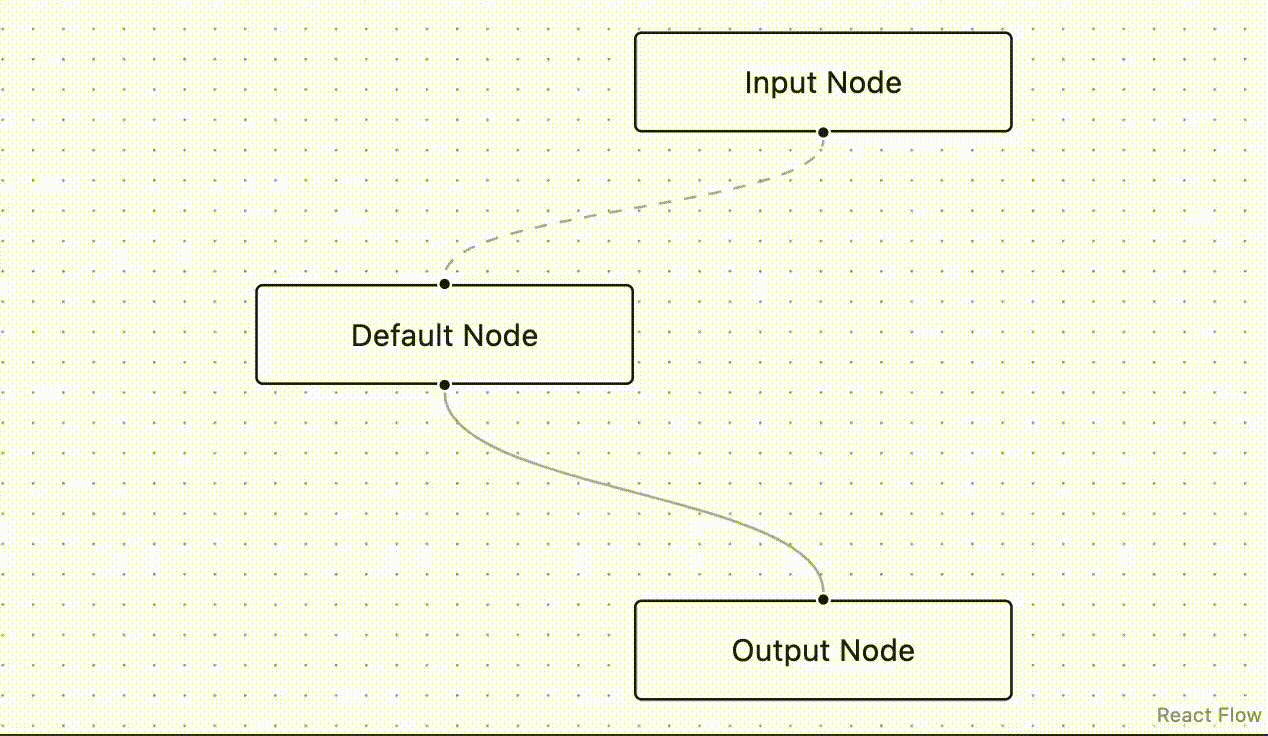
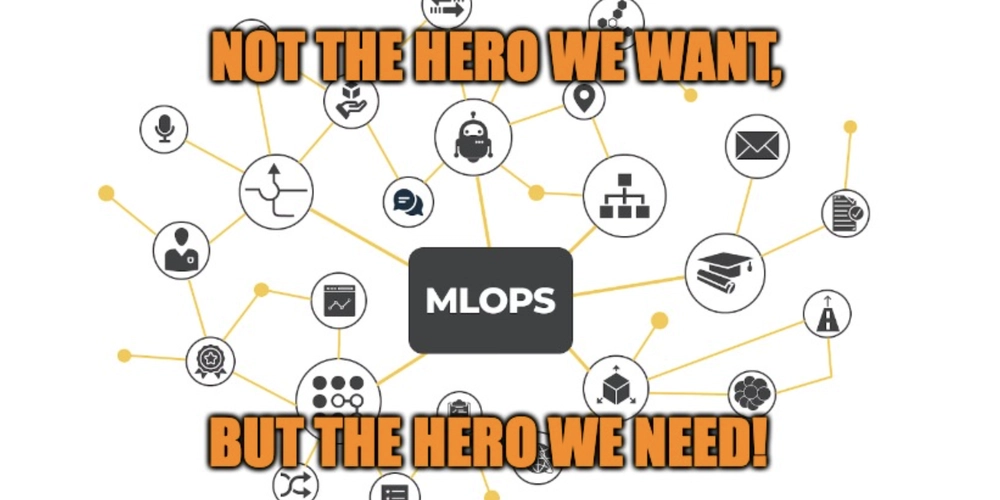












![From drop-out to software architect with Jason Lengstorf [Podcast #167]](https://cdn.hashnode.com/res/hashnode/image/upload/v1743796461357/f3d19cd7-e6f5-4d7c-8bfc-eb974bc8da68.png?#)










































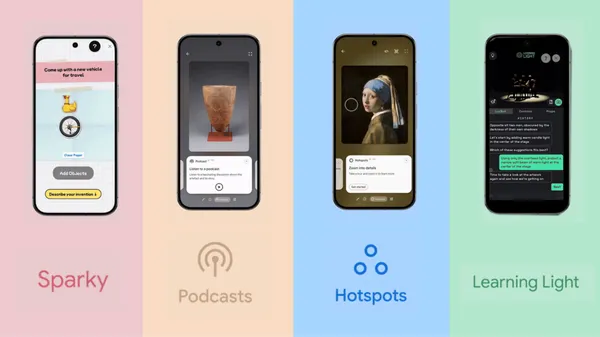


































































(1).jpg?width=1920&height=1920&fit=bounds&quality=80&format=jpg&auto=webp#)





























_NicoElNino_Alamy.png?#)
.webp?#)
.webp?#)









































































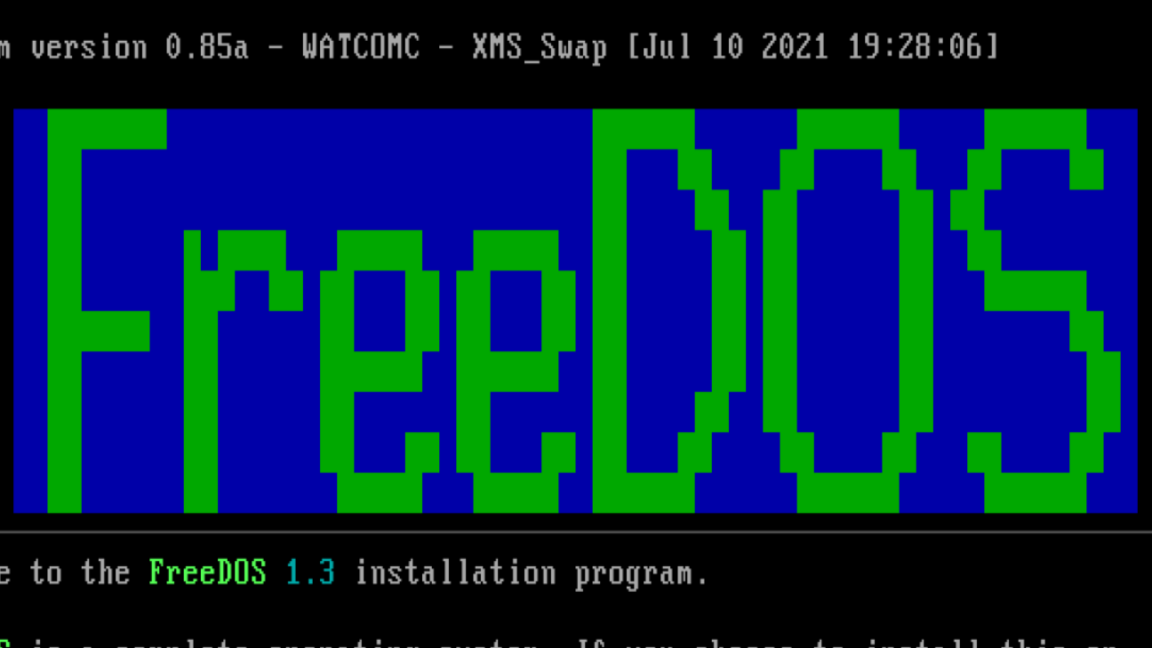


























![New iOS 19 Leak Allegedly Reveals Updated Icons, Floating Tab Bar, More [Video]](https://www.iclarified.com/images/news/96958/96958/96958-640.jpg)

![Apple to Source More iPhones From India to Offset China Tariff Costs [Report]](https://www.iclarified.com/images/news/96954/96954/96954-640.jpg)
![Blackmagic Design Unveils DaVinci Resolve 20 With Over 100 New Features and AI Tools [Video]](https://www.iclarified.com/images/news/96951/96951/96951-640.jpg)































































































































